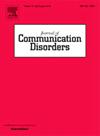Content validity of the aphasia customised electronic patient reported outcome (ACe-PRO) - revealing hidden difficulties post stroke
IF 2.1
3区 医学
Q2 AUDIOLOGY & SPEECH-LANGUAGE PATHOLOGY
引用次数: 0
Abstract
Purpose
This study aimed to evaluate the content validity of the Aphasia Customised electronic Patient Reported Outcome (ACe-PRO) questionnaire, designed for people with aphasia following stroke. ACe-PRO serves as a dialogue tool to address hidden difficulties in post-stroke consultations.
Method
The study followed the COSMIN (Consensus-based Standards for the Selection of Health Measurement Instruments) guidelines for content validity, focusing on relevance, comprehensiveness, and comprehensibility. Data were collected through cognitive interviews with nine people with aphasia and structured as well as semi-structured interviews with seventeen healthcare professionals.
Result
Both people with aphasia and healthcare professionals found ACe-PRO relevant. However, healthcare professionals identified challenges with unclear underlying concepts in certain items. People with aphasia reported issues with wording and pictorial support. The comprehensiveness of the tool was generally rated as good, though suggestions for additional items were made.
Conclusion
ACe-PRO was assessed somewhat relevant. Adjustments are required to enhance its comprehensibility, particularly regarding wording, pictorial support, and the response scale. Further testing is needed to assess respondent burden in clinical practice and to validate its use in a digital format.
失语定制电子患者报告结果(ACe-PRO)的内容效度——揭示脑卒中后隐藏的困难
目的本研究旨在评估失语症定制电子患者报告结果(ACe-PRO)问卷的内容效度,该问卷专为卒中后失语症患者设计。ACe-PRO是解决中风后磋商中隐藏困难的对话工具。方法本研究遵循COSMIN(基于共识的健康测量工具选择标准)内容效度指南,注重相关性、全面性和可理解性。数据是通过对9名失语症患者的认知访谈和对17名医疗保健专业人员的结构化和半结构化访谈收集的。结果失语症患者和医护人员均认为ACe-PRO具有相关性。然而,医疗保健专业人员在某些项目中发现了潜在概念不明确的挑战。失语症患者报告在措辞和图片支持方面存在问题。该工具的全面性通常被评为良好,尽管对其他项目提出了建议。结论ace - pro评价具有一定的相关性。需要进行调整,以提高其可理解性,特别是在措辞、图像支持和反应规模方面。需要进一步的测试来评估临床实践中的应答者负担,并验证其在数字格式中的使用。
本文章由计算机程序翻译,如有差异,请以英文原文为准。
求助全文
约1分钟内获得全文
求助全文
来源期刊

Journal of Communication Disorders
AUDIOLOGY & SPEECH-LANGUAGE PATHOLOGY-REHABILITATION
CiteScore
3.30
自引率
5.90%
发文量
71
审稿时长
>12 weeks
期刊介绍:
The Journal of Communication Disorders publishes original articles on topics related to disorders of speech, language and hearing. Authors are encouraged to submit reports of experimental or descriptive investigations (research articles), review articles, tutorials or discussion papers, or letters to the editor ("short communications"). Please note that we do not accept case studies unless they conform to the principles of single-subject experimental design. Special issues are published periodically on timely and clinically relevant topics.
 求助内容:
求助内容: 应助结果提醒方式:
应助结果提醒方式:


